Numerous factors influence the aging process, ranging from genetics and environment to stress, tobacco use, and dietary habits. While some factors may be beyond our control, focusing on our food and beverage choices can enhance longevity. While a diverse range of foods such as nuts, fish, oils, herbs, and spices can contribute to healthy aging, we'll specifically delve into fruits and vegetables supported by research for their anti-aging properties.
So, how do fruits and vegetables affect aging? Packed with nutrients, antioxidants, and bioactive compounds, they play a crucial role in combating age-related ailments like heart disease, cognitive decline, inflammation, and oxidative stress. Additionally, they can help mitigate risks associated with blood pressure and cholesterol, directly impacting cardiovascular health. But which fruits and vegetables stand out for their abundance of these anti-aging nutrients?
We consulted with dietitians and reviewed recent research studies to identify some of the top fruits and vegetables for promoting longevity. Keep reading to learn more.
1) Red/Purple Cabbage
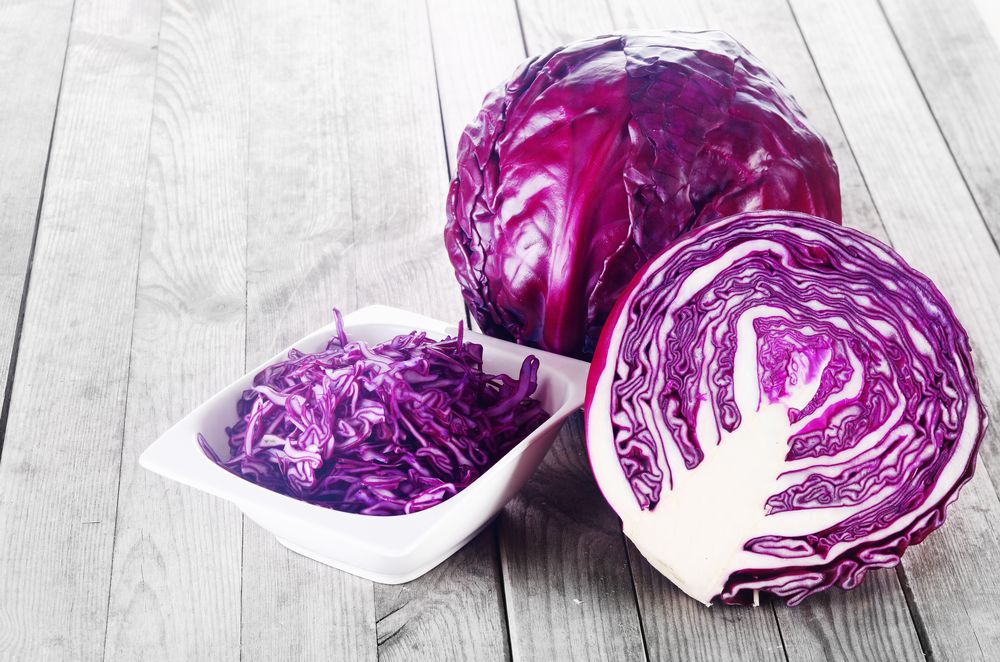
Tammy Lakatos Shames, RDN, CDN, CFT, and Lyssie Lakatos, RDN, CDN, CFT, renowned as The Nutrition Twins, highlight red and purple cabbage as a standout vegetable for enhancing longevity.
"This variety of cabbage belongs to the cruciferous family, boasting potent sulfur-containing antioxidants known as glucosinolates. Research indicates that along with anthocyanins, another potent compound found in cabbage, glucosinolates aid in mitigating the risks of heart disease, cancer, arthritis, and neurodegenerative diseases," explains The Nutrition Twins.
"In addition to fortifying heart health, cabbage serves as a rich source of phytosterols and fiber, contributing to cholesterol reduction," they further elaborate. "These components not only benefit cardiac function but also play pivotal roles in maintaining digestive health, ensuring regularity, and nurturing beneficial gut bacteria. Given the central role of digestive health in overall well-being and longevity, cabbage emerges as a pivotal promoter of healthy aging."
2) Mushrooms
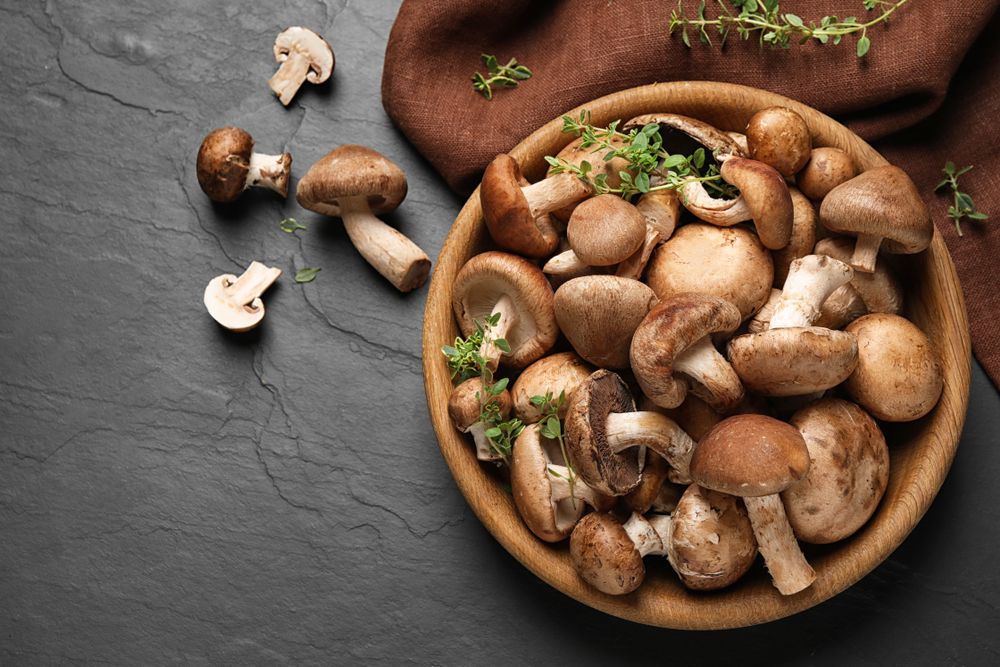
Not everyone may fancy the taste of mushrooms, but for those who enjoy incorporating fungi into their culinary creations, there's good news: mushrooms offer aging benefits.
According to Lauren Manaker, MS, RDN, certain varieties such as shiitake, reishi, and maitake stand out for their potential to bolster immune health. These mushrooms are rich in beta-glucans, complex sugars known to activate the immune system. Moreover, mushrooms are packed with potent antioxidants like selenium and ergothioneine, which safeguard cells from harm and quell inflammation.
Echoing this sentiment, the Nutrition Twins assert that mushrooms are veritable champions of longevity. They highlight numerous studies suggesting that mushrooms shield against mild cognitive impairment (MCI) and may even provide defense against Alzheimer's disease and other neurodegenerative conditions, thanks to their abundance of polyphenols and antioxidants.
Furthermore, the Twins emphasize that mushrooms contribute to a healthy gut environment. Their polysaccharide content serves as prebiotic fiber, fostering the flourishing of beneficial bacteria (probiotics). A balanced microbiome, they note, influences everything from mood to autoimmunity to weight management.
To ensure you reap the benefits of mushrooms, Manaker proposes adopting a "Mushroom Monday" routine, making it a habit to incorporate mushrooms into your diet every Monday to support longevity.
3) Blueberries
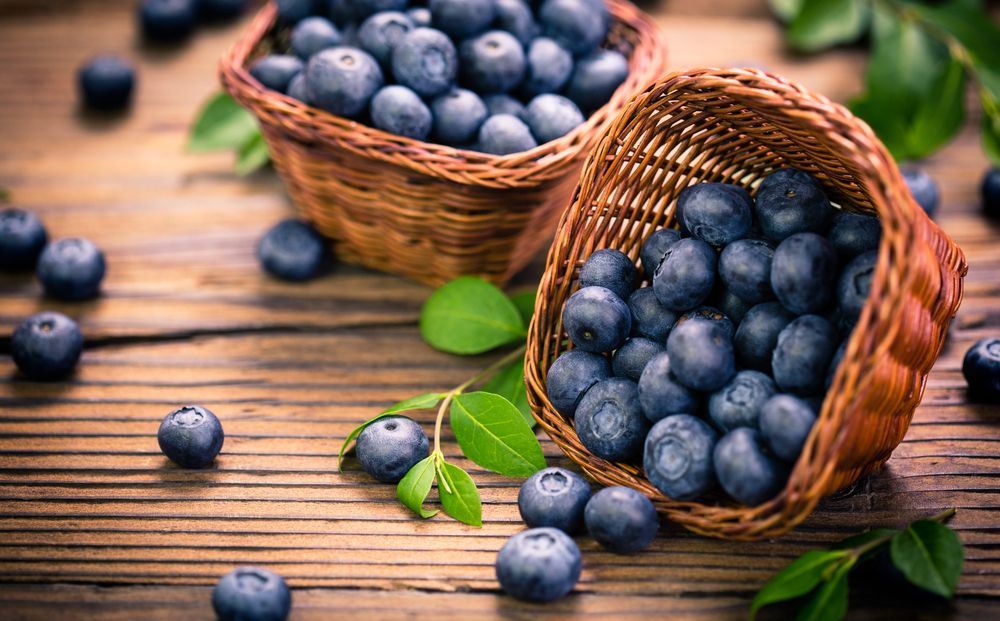
Blueberries are hailed for their myriad health benefits, with a significant advantage being their support for healthy aging.
Lauren Manaker highlights blueberries as a superfood, attributing their health-promoting properties to their rich antioxidant content, particularly anthocyanins. These potent compounds combat oxidative stress and inflammation, factors associated with chronic diseases and the aging process. Regular consumption of blueberries not only enhances short-term well-being but also holds potential for fostering a longer, healthier life.
Studies published in Gerontology further underscore the role of blueberries in mitigating the risk of age-related neurological disorders such as Alzheimer's, dementia, and Parkinson's disease.
4) Broccoli
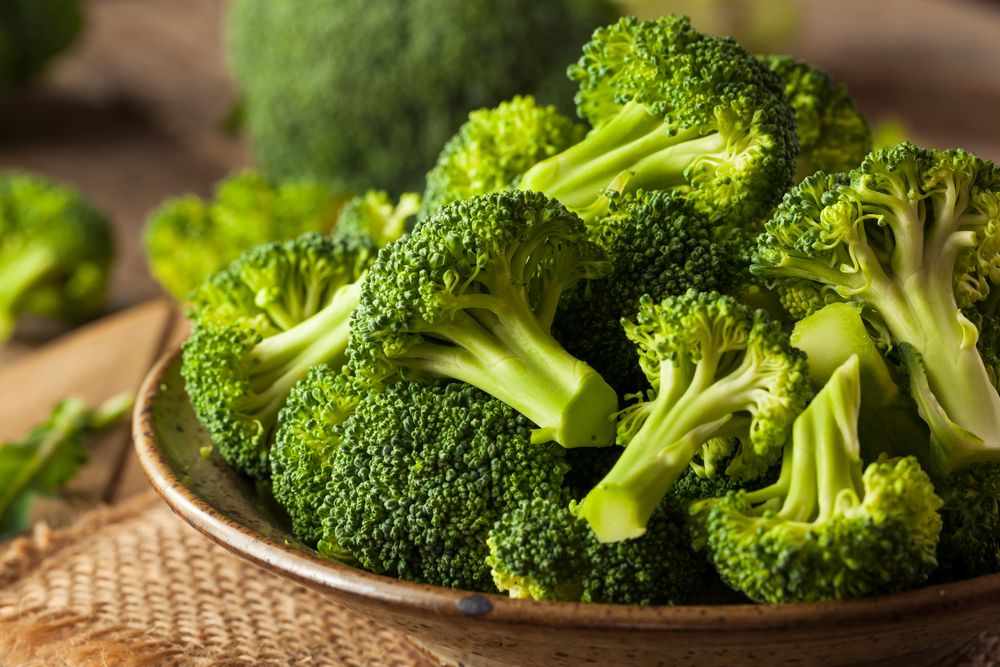
If broccoli is your thing, consider adding it as a side dish to your next meal, as this vegetable has been associated with improved longevity.
Lauren Manaker explains, "Broccoli packs a punch with its fiber, vitamins C and K, iron, and various antioxidants known to reduce the risk of chronic diseases such as heart disease and cancer."
She further emphasizes, "A standout element, sulforaphane, plays a crucial role in enhancing the body's detoxification mechanisms and shielding against cellular damage."
5) Beets
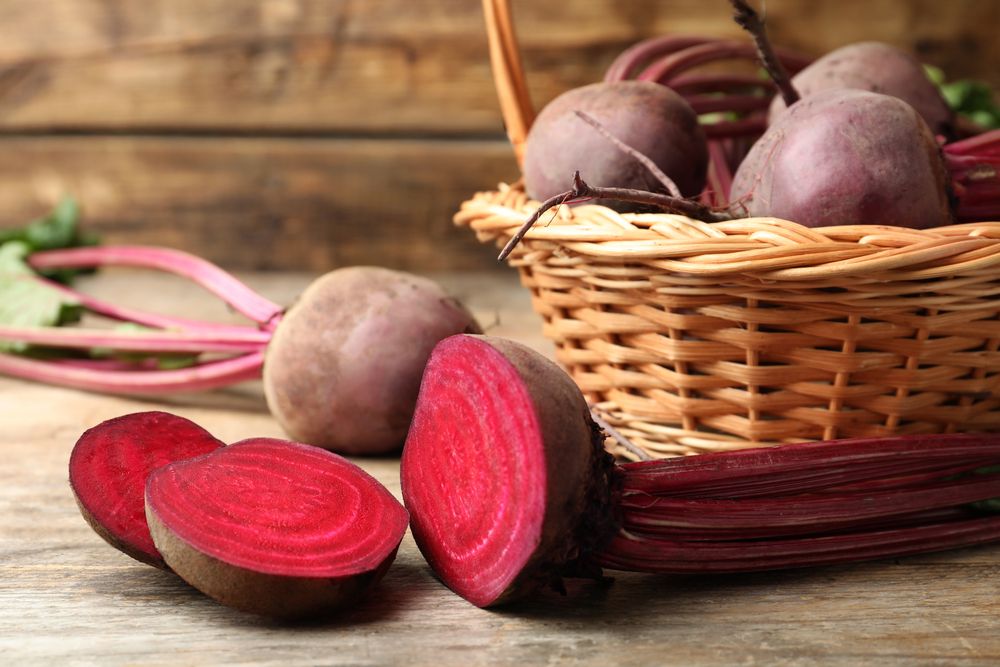
Beets are often underestimated, but Lauren Manaker warns against overlooking them, stating they are "another powerhouse in the realm of foods that promote longevity."
"These vibrant, earthy root vegetables boast an array of nutrients, including fiber, folate (vitamin B9), manganese, potassium, iron, and vitamin C," she explains. "Beets and their juice have been linked to numerous health advantages, such as enhanced blood flow, reduced blood pressure, and improved exercise performance, all thanks to their high nitrate content. These compounds are converted into nitric oxide in the body, promoting blood vessel dilation and resulting in improved circulation and oxygen delivery throughout the body."
Furthermore, Manaker highlights the additional benefits of the color pigments in beets. "These pigments, known as betalains, give beets their striking color and possess potent anti-inflammatory and antioxidant properties, providing defense against oxidative stress and chronic diseases."
6) Mangoes
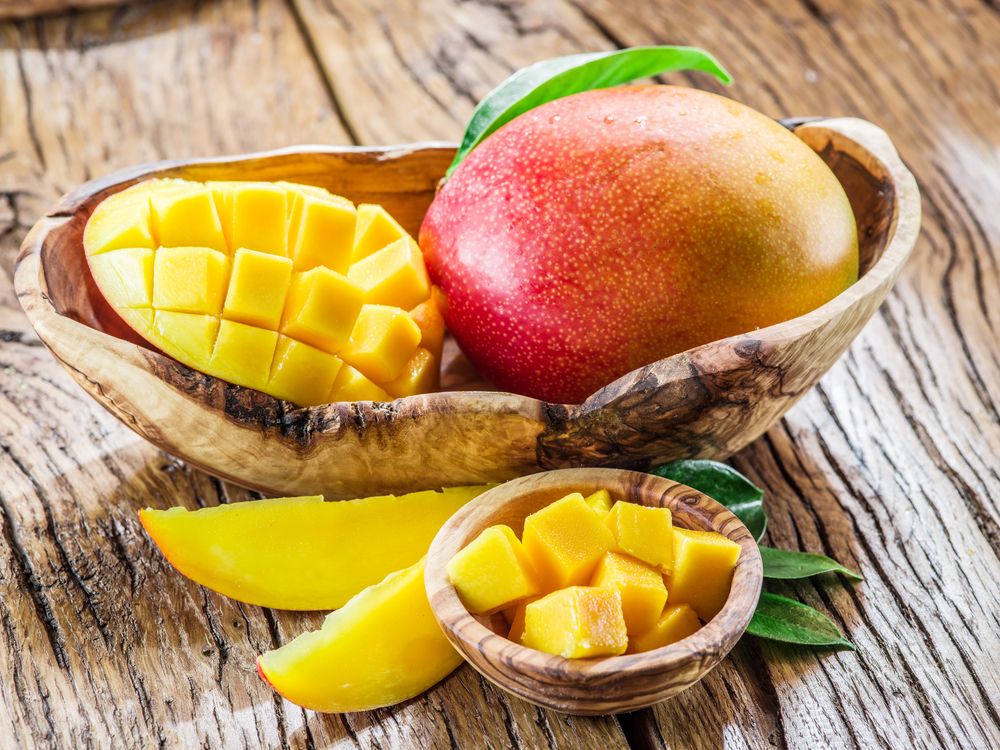
"Mangoes, with their sweet, tropical taste, offer more than just culinary pleasure—they're also a boon for longevity," states Manaker. But what exactly makes these summertime fruits so beneficial for the aging process?
"These juicy fruits are loaded with vitamins A and C, pivotal for immune function and skin health," explains Manaker. "Moreover, the abundant antioxidants present in mangoes, such as mangiferin, quercetin, and gallic acid, contribute to their ability to combat oxidative stress and inflammation, both significant factors linked to aging and chronic diseases."
Additionally, she highlights that the fiber in mangoes can promote digestive health and contribute to maintaining a healthy gut microbiome, a critical element for overall health and longevity.
7) Avocado
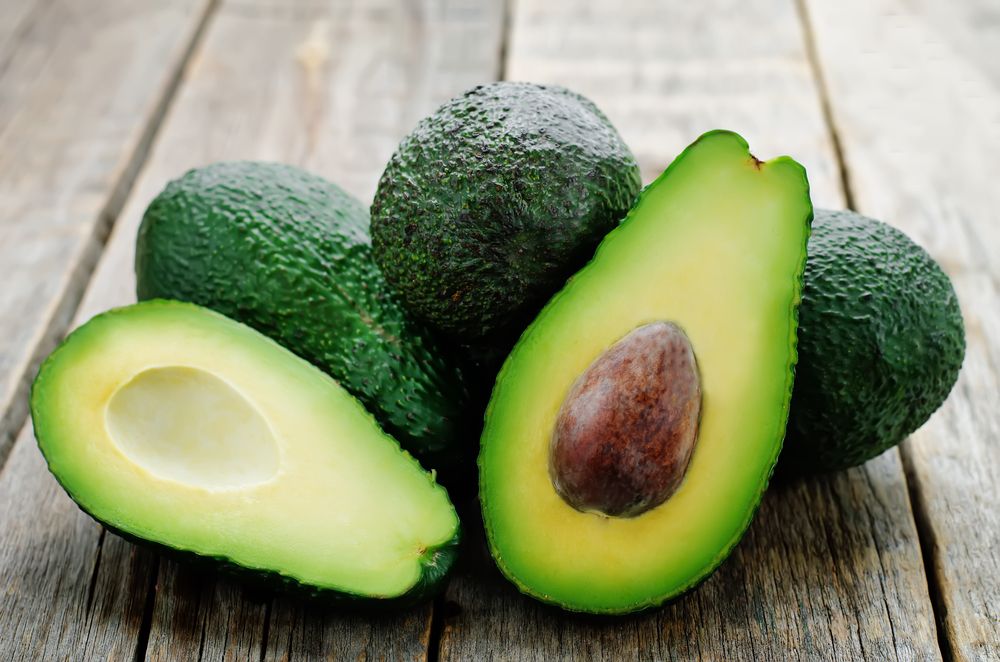
Avocados stand out as potent superfoods associated with a plethora of health benefits, many of which are particularly advantageous for promoting healthy aging and longevity.
Primarily, avocados boast a high fiber content, which contributes to reducing the risk of heart disease and enhancing gut health. Studies indicate that avocados aid in lowering LDL cholesterol levels, known as the "bad" cholesterol, directly reducing the risk of heart disease and alleviating chronic inflammation. Moreover, avocados are abundant in nutrients and antioxidants that play a role in lowering the risk of neurodegenerative diseases such as Parkinson's, Alzheimer's, and dementia.
8) Spinach
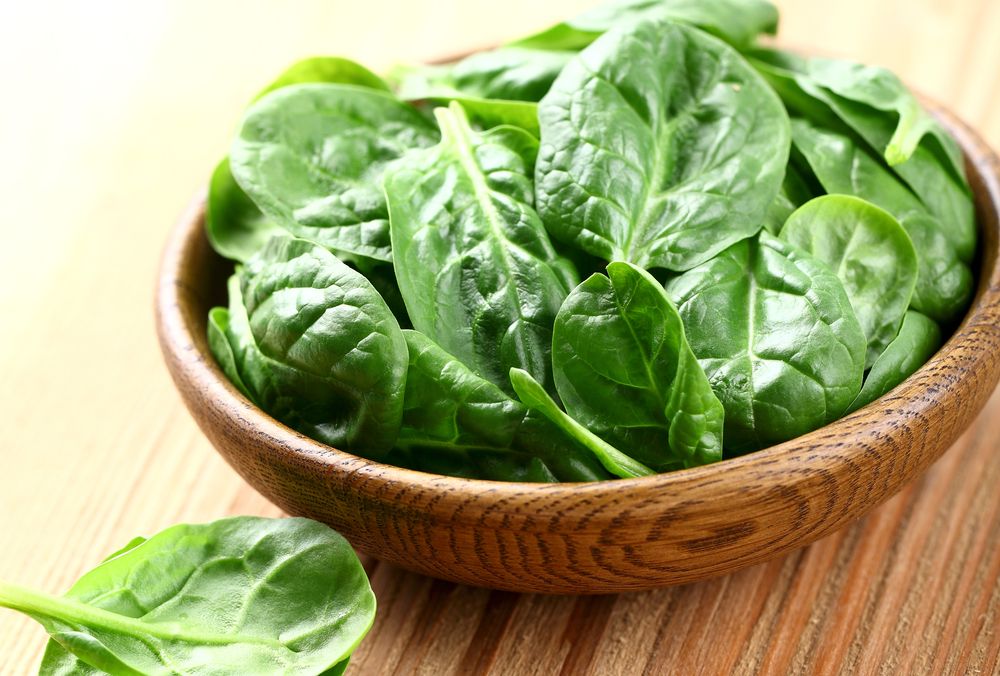
When seeking out nutrient-rich foods, leafy greens such as spinach, kale, and arugula consistently prove to be an excellent choice.
Leafy greens, in general, have been associated with a decelerated cognitive decline due to their wealth of nutrients and bioactive compounds like lutein, beta-carotene, nitrate, and folate. Specifically, spinach stands out for its potential to aid in lowering blood pressure, attributed to its elevated potassium levels. Moreover, a study suggests that regular consumption of spinach may lead to increased levels of lutein, which directly contributes to reducing the risk of macular degeneration—an age-related eye condition.
9) Kale
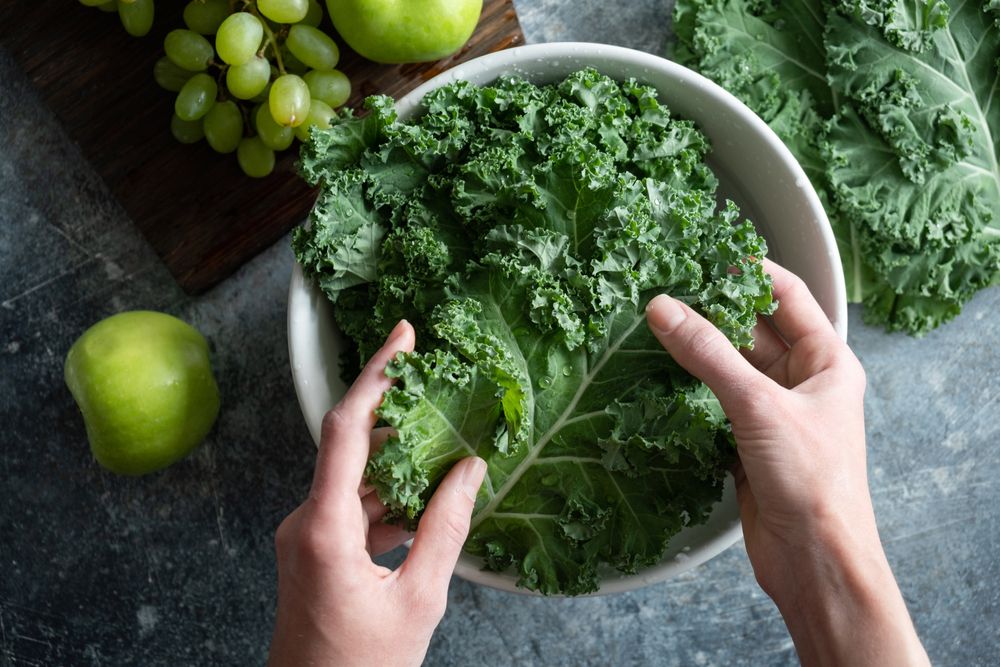
When discussing leafy greens, kale emerges as another superb option for promoting healthy aging. Like spinach, kale belongs to the category of leafy greens, which have been identified for their ability to diminish and decelerate age-related cognitive decline owing to their potent nutrient profile.
Additionally, kale, along with other leafy greens, has been associated with a decreased risk of cardiovascular disease. A study even revealed that consuming kale juice may contribute to reducing the risk of coronary heart disease.
10) Strawberries
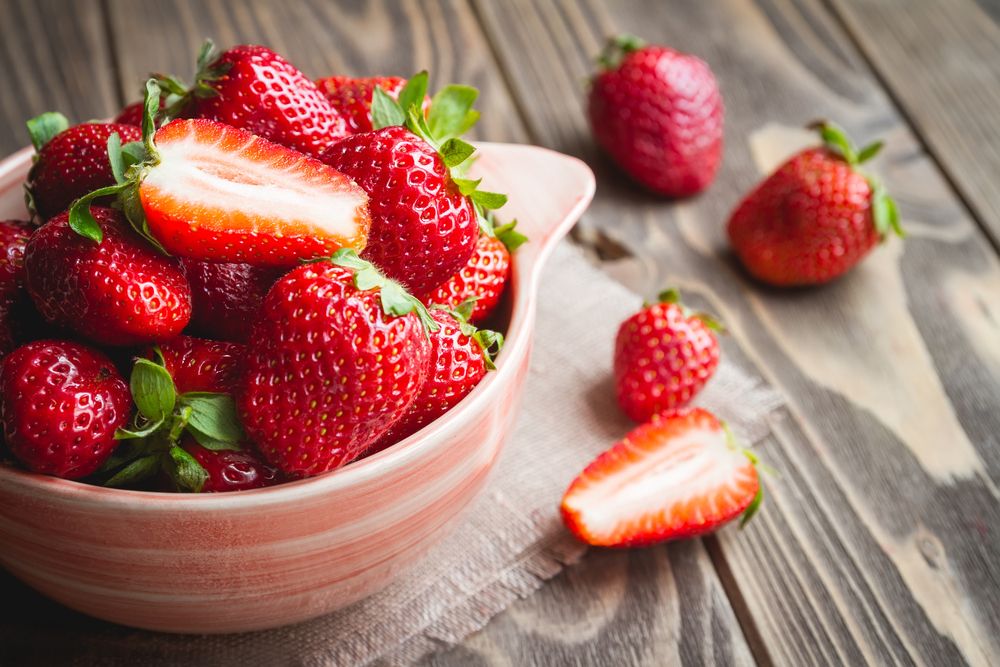
While we've highlighted blueberries for their contribution to healthy aging, strawberries also deserve recognition among longevity fruits. Research from the British Journal of Nutrition suggests that incorporating strawberries into your diet may aid in addressing aspects of age-related cognitive decline, particularly memory.
Furthermore, a separate study discovered that strawberry powder could potentially enhance memory and alleviate depressive symptoms in certain middle-aged individuals, showcasing the cognitive benefits of including strawberries in one's diet.

